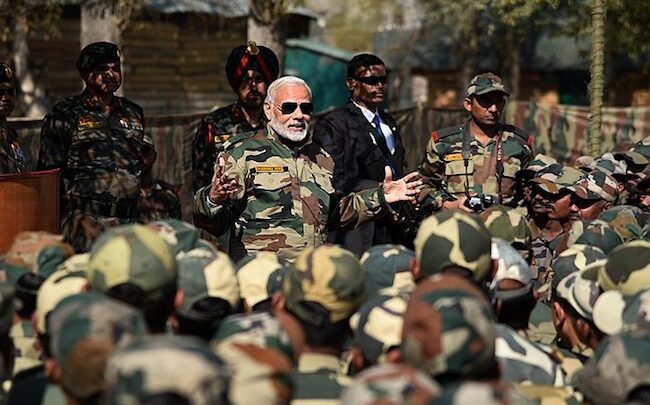Halt in Kashmir’s diplomacy

By Sher Bano
It has been seven months since India unilaterally annexed occupied Kashmir. Since then, Pakistan has made several efforts in order to peacefully resolve the long-standing Kashmir issue. Lately, criticism has been coming from not only the opposition but also from within the federal cabinet that Pakistan is not effectively pursuing the Kashmir case anymore. Dr. Maleeha Lodhi, Pakistan’s former envoy to the United Nations told the Senate Foreign affairs committee that “Right now there is an inexplicable halt in our Kashmir diplomacy. People ask why?” while speaking on “Pakistan’s Foreign policy Challenges and opportunities”. Along with that Dr. Lodhi called for consistency and clarity in Pakistan’s Kashmir’s policy and insisted that Kashmir issue could lose focus of international community if urgent steps are not taken by Pakistan.
Pakistan’s early diplomatic response was prodigious, which involved terminating trade with India, recalling ambassadors and approaching United Nations and other international human rights organizations. After a period of 50 years, UNSC met to discuss the Kashmir issue on request of Pakistan which was a clear diplomatic victory. Prime Minister of Pakistan Imran Khan and his address at United Nations General Assembly was also a commendable effort to raise this issue and to gain attention of international community. Pakistan’s efforts to resolve Kashmir issue seems to have mellowed down, as pointed out by Dr. Lodhi. According to her Pakistan needs consistency in its diplomatic campaign on Kashmir and needs to keep pushing boundaries at international level otherwise world might forget about the Indian atrocities in IOK.
The question arises why the Kashmir issue has lost momentum in the foreign policy of Pakistan? First reason can be the gap between policy and practice. Despite having a proactive approach towards the internationalization of the Kashmir dispute, the government of Pakistan has been unsuccessful in calling a result oriented meeting of UNSC to resolve the situation in IOK. All the members of the UN have the right to call the meeting of the Security Council and an emergency meeting of the General assembly if the issue is a serious threat to international peace and security. The closed door meeting of Security Council that took place on January 15th on the request of Pakistan and China also failed to put any pressure on the Indian government to end its brutalities in Kashmir.
Pakistan also has been unsuccessful in organizing a ministerial meeting of the Organization of Islamic cooperation. There was need for emergency session to be held to discuss the Kashmir issue instead the OIC called the meeting in April. Apart from that Pakistan should have participated in the Kuala Lumpur summit because it was a platform where Kashmir issue could have been highlighted as Turkey, Iran and Malaysia had already shown their support for the Kashmir cause. But Pakistan withdrew from participating in the summit at the eleventh hour.
Hence Pakistan needs to take urgent steps in order to resolve the Kashmir dispute. The compulsion for the international community and Security Council to intervene in the dispute and promote solution depends upon Pakistan’s persistence in propagating the Kashmir cause in the face of Indian coercion and threats. Pakistan needs to take every step in order to make the international community intervene and resolve the Kashmir dispute.
Moreover Pakistan needs to strengthen its economy and bring political stability in order to take firm stance against India. Pakistan should convey to India in clear terms that if the genocide happens in Kashmir, Pakistan will go to any length to protect those facing the threat of ethnic cleansing. Pakistan must expose the ugly face of India and its plan of carrying out ethnic cleansing in IOK by calling a special session of UN Human rights council in Geneva. The world will only intervene if the genocide or ethnic cleansing occurs in Kashmir or there is a real threat of war between India and Pakistan.
Role of major powers is also important especially the five permanent members of the UNSC. Geopolitics will play a very important role in their positions. China however had already shown its support for Pakistan. Even though China’s support is important, Pakistan also needs to gain US backing to secure its Kashmir strategy. In order to get US support Pakistan can leverage its facilitation of US-Afghan peace deal or US-Afghan negotiations. UK also might be sympathetic on the Human rights issue, hence its support depends upon how strongly Pakistan puts forward the case of Kashmir in the UN. Lastly France and Russia can be persuaded by taking stronger diplomatic measures.
Hence in order to avoid Kashmir from becoming a forgotten case Pakistan needs to bring consistency and clarity in its diplomatic campaign on Kashmir. Which includes the continuous effort to internationalize the Kashmir issue to impose the international pressure, strengthening its economy and bringing political stability. The world needs to know that if India doesn’t stop atrocities in IOK, it might provoke another war between India and Pakistan. And if the war happens it will bring catastrophe not only to South Asia but to the whole world.
Sher Bano is a Research Affiliate at the Strategic Vision Institute (SVI), a non-partisan think-tank based out of Islamabad, Pakistan.




